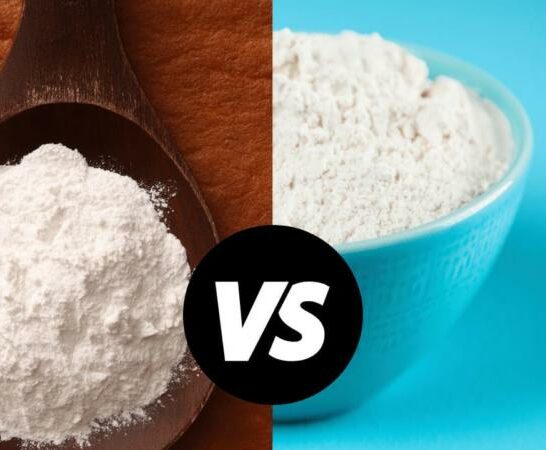The world of baking can be confusing, primarily if you’re just getting started.
There are plenty of unexpected math and science components that go into baking, and this fact can come as a surprise to many new or novice bakers.
Thankfully, the internet is full of people asking questions, and is baking powder the same as baking flour, happens to be one of those questions.
Many baking ingredients have similar names, so it takes a moment or two to get them sorted and to ensure that you’re using the necessary products to make your baking venture successful.
Is Baking Powder the Same as Baking Flour?
Baking powder is not the same as baking flour, though when the two come together, they create delicious cakes, pizza crusts, muffins; pretty much any baked good in existence contains these two ingredients. Baking powder is a mixture of baking soda, calcium acid phosphate, and starch, while baking flour in most variations is simply ground wheat. The former acts as a raising agent while the latter is the basis for most baked treats. Though they are not the same, you’ll need them both for a successful cake or loaf of bread.
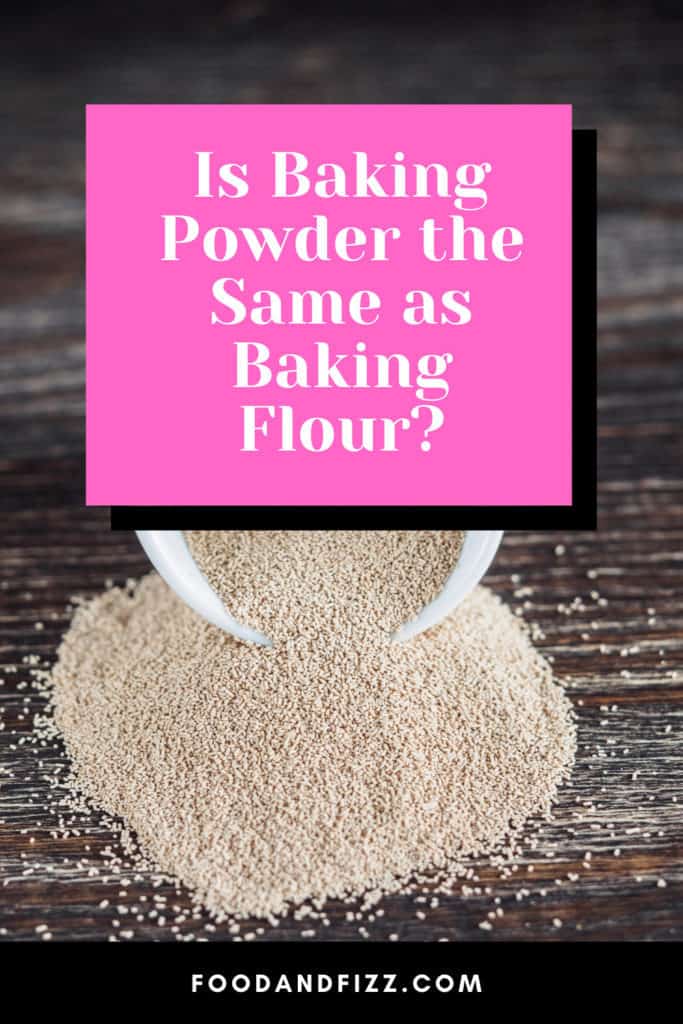
What is Baking Powder?
Not to be confused with baking soda, baking powder is an agent placed into many baked goods.
It contains baking soda, calcium acid phosphate, and starch.
Occasionally, recipes will call for both baking powder and baking soda, so make sure you have them both on hand.
Baking powder needs flour in order to do its job, so these things are actually incredibly different.
Not only do they have different assignments when it comes to baking, but they’re also sized very differently, even when buying them in bulk.
Baking soda comes in a rather small container, while flour starts at five pounds.
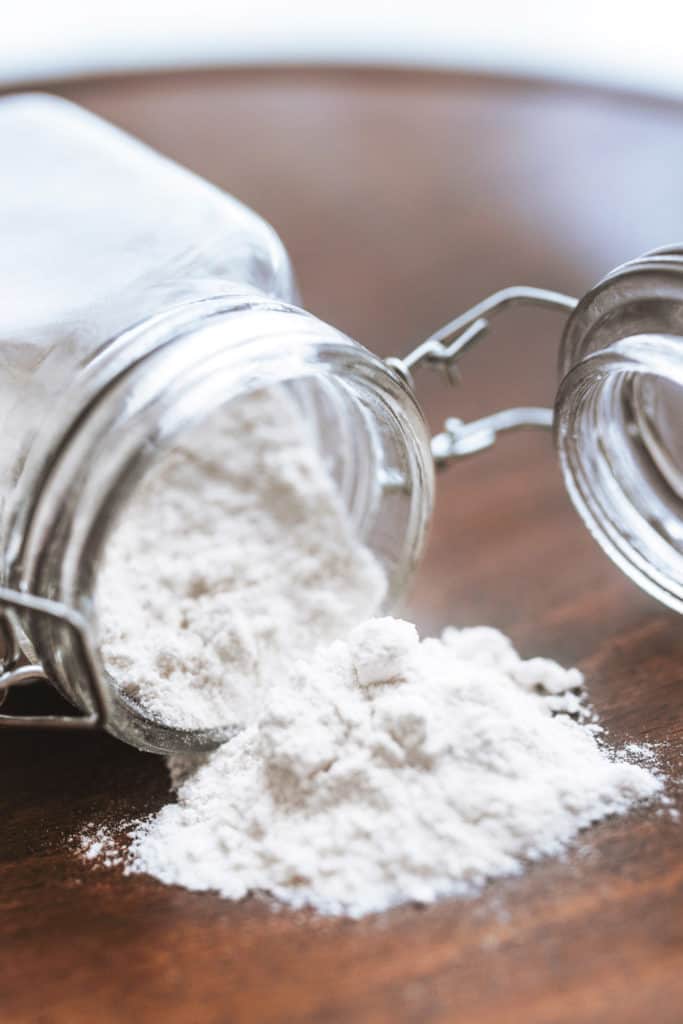
What is Baking Flour?
The world of baking flour is actually a vast one, but most traditional flours, such as whole wheat, all-purpose, cake flour, self-rising flour, and unbleached flour, are all the result of ground wheat.
Baking flour acts as the base for most baked goods and is, therefore, the ingredient that you’ll use the most.
Cakes, cupcakes, cookies, scones, bread, muffins, and doughnuts all require a substantial amount of baking flour to turn out.
Baking powder is the component that helps the baking flour rise, and in the case of self-rising flour, it’s unlikely that you’ll need it.
This varies from recipe to recipe, however, so make sure you read through your ingredient list before you begin baking.
There are various baking flours that are gluten-free or do not contain wheat. Most of them work incredibly well as substitutions for traditional baking flour.
Many people like to substitute options such as oat flour, flax flour, spelt flour, almond flour, or coconut flour into their recipes to change up the taste or add health benefits.
Fun fact: You can easily make your own oat flour by simply grinding up oatmeal in a blender or food processor.
When it’s finely ground, you can substitute it into your recipe by using the amount of baking flour suggested.
For example, one cup of baking flour is equal to one cup of oat flour. For gluten-free oat flour, make sure you purchase gluten-free oats!
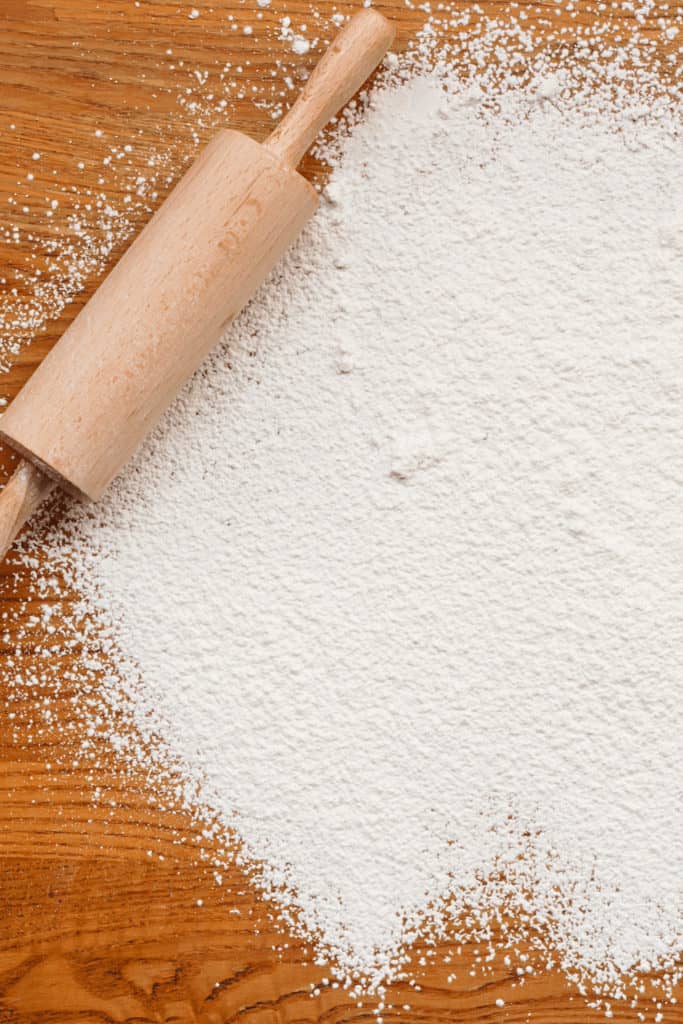
The Difference Between Baking Powder and Baking Soda
They sound similar, they’re often confused with one another, but baking powder and baking soda are not the same.
Baking soda is made of sodium bicarbonate and it requires acid and a liquid to activate within a recipe, helping the finished product to rise.

Baking powder, on the other hand, includes sodium bicarbonate as well as an acid (calcium acid phosphate), which means that as long as the liquid is present (eggs, water, milk), the baking powder can do its job.
You can substitute one for the other, but you’ve got to ensure that you use well-calculated measurements.
They cannot replace each other the way oat flour can replace all-purpose flour, so measure with care.
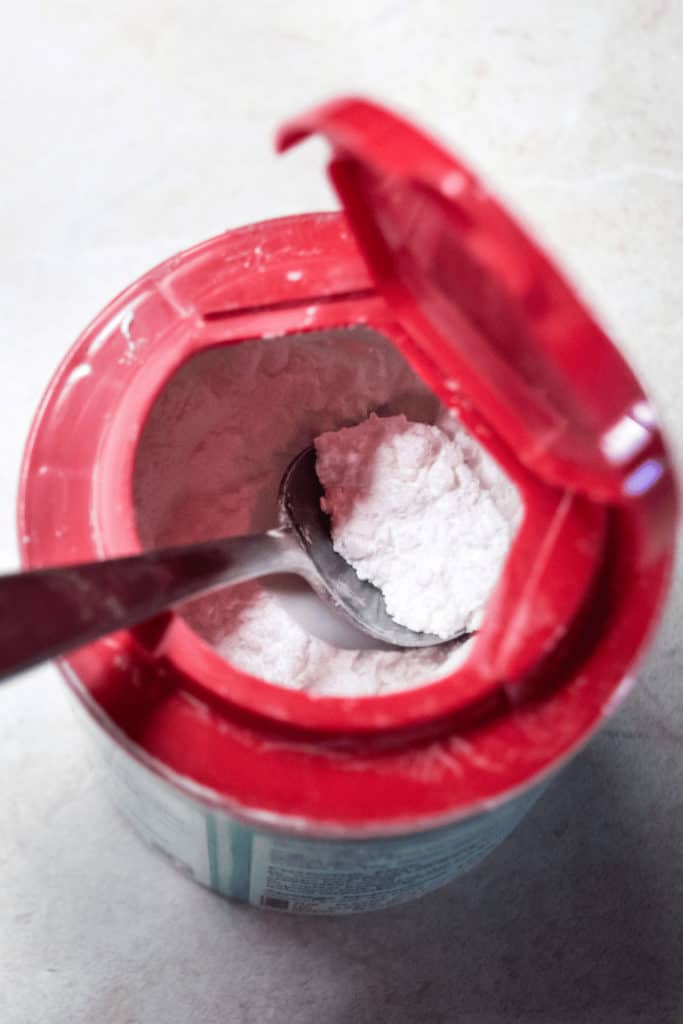
Frequently Asked Questions About Is Baking Powder the Same as Baking Flour
Baking can be a surprisingly difficult venture, primarily if you’re not used to it.
So often, new bakers become so overwhelmed with similar-sounding ingredients and measurements that they decide to give up when baking is actually super fun and a fantastic stress reliever.
How is baking powder different from baking flour?
Baking powder is a raising agent that causes the baking flour within baked goods to rise. The baking powder helps your cookies and muffins become fluffy and thick, while the baking flour is actually the wheat base of the baked goods. There are few recipes that call for baking flour without a baking powder (or baking soda), so have them both on hand.
Can I substitute baking soda for baking powder?
If you have the time to go to the store and purchase baking powder, I suggest doing so. It will be much easier than taking the time to calculate the specific measurements that go into substituting baking soda for baking powder. If you’re up for a little science and you can afford to have a batch of cookies come out funky, then I’m all for playing with substitutions.
Conclusion About Is Baking Powder The Same As Baking Flour
Overall, you need both of these ingredients to create delicious baked goods that your friends and family will love.
They are most definitely not the same, but they play off of each other in a way that they’re both necessary in most baking recipes.
If you plan on baking, pick them both up ahead of time. You’ll be happy you did!

